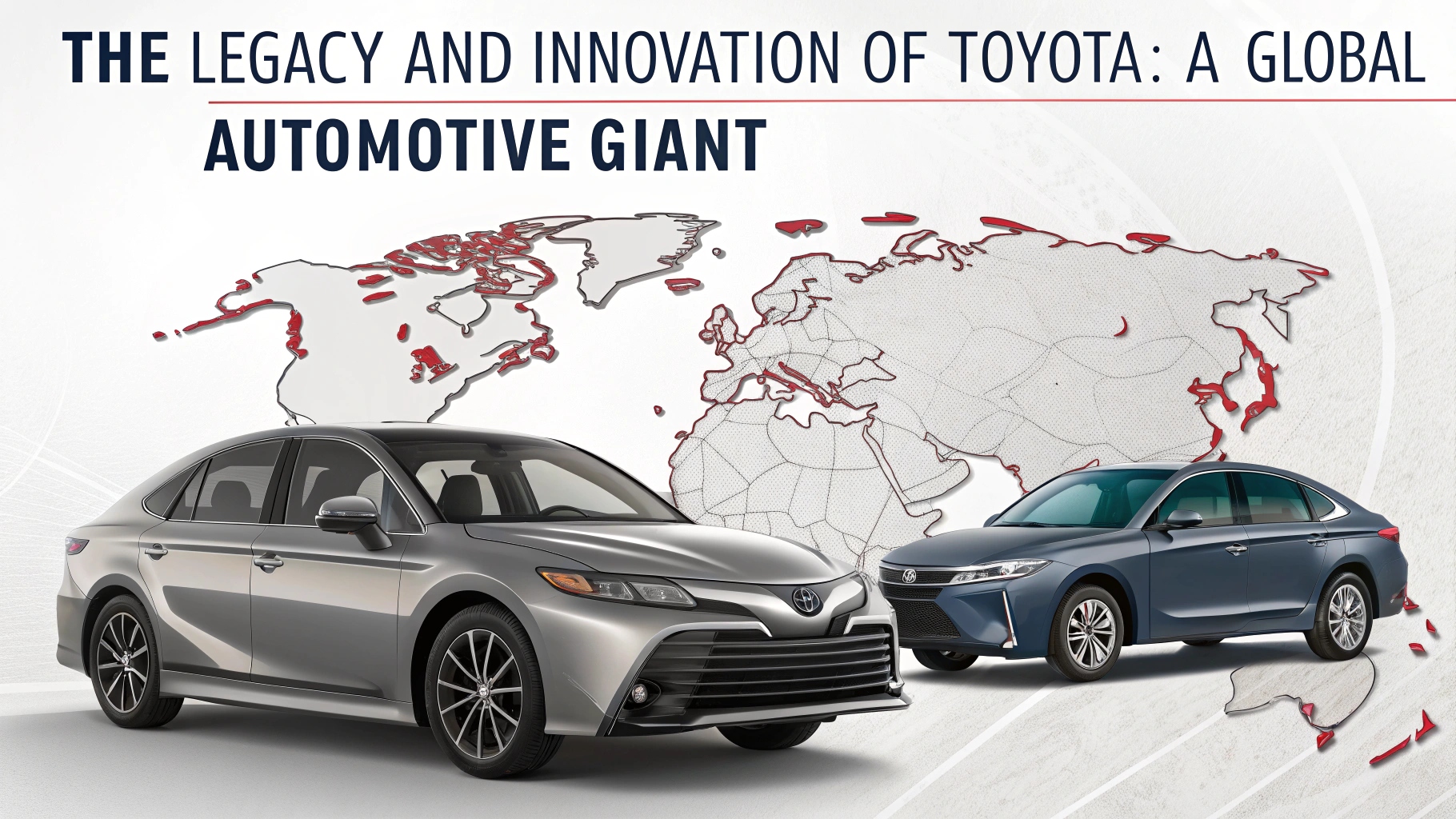The Legacy and Innovation of Toyota: A Global Automotive Giant
When discussing the most influential automobile manufacturers in history, one brand consistently rises to the forefront. Known for its Toyota reliability, innovation, and customer-first approach, this company has shaped the way the world views cars. Over the decades, it has built a reputation not just as a carmaker but as a pioneer in technology, sustainability, and mobility solutions.
A Journey That Redefined Automobiles
The story begins in Japan during the early 20th century, when the foundation for what would become a leading automotive empire was laid. Initially starting in the textile machinery industry, the company transitioned into automobile production with a mission to create vehicles that would serve the needs of everyday people.
Its rise to global prominence wasn’t instant but marked by consistent improvements and bold moves. By the mid-20th century, the brand was exporting cars beyond Asia, rapidly becoming a household name in Europe and North America. This growth was propelled by a reputation for engineering vehicles that could endure, offering unmatched value for money.
A Philosophy Built on Kaizen
One of the driving forces behind the company’s success has been its commitment to Kaizen, a Japanese term meaning “continuous improvement.” This philosophy influences every stage of production, from design and manufacturing to customer service. Employees at all levels are encouraged to find ways to enhance efficiency, reduce waste, and improve quality.
This philosophy has had far-reaching effects not only on the automotive industry but also in management practices worldwide. Businesses outside the car sector have adopted Kaizen principles, demonstrating the company’s influence beyond its own industry.
Iconic Models and Global Appeal
The brand’s vehicles have become synonymous with dependability. From compact sedans to rugged SUVs, the lineup has always offered something for every type of driver. Models such as the Corolla and Camry became global bestsellers, while the Land Cruiser earned a reputation as one of the most durable off-road vehicles ever made.
By offering a balance of affordability, comfort, and durability, the company captured a wide demographic. Families, professionals, and adventurers alike found value in its lineup. This broad appeal helped cement its place as one of the most trusted automakers in the world.
The Hybrid Revolution
Perhaps the most groundbreaking contribution came with the launch of the Prius in the late 1990s. At a time when fuel efficiency and environmental concerns were becoming pressing global issues, the company introduced the first mass-produced hybrid vehicle.
The Prius wasn’t just a car—it was a statement. It proved that eco-friendly technology could be practical, reliable, and accessible. This move positioned the automaker as a leader in sustainable innovation and set the stage for the future of the automotive industry.
Today, nearly every major car manufacturer has a hybrid or electric model, but this company was the first to bring the concept to the mainstream market. Its early investment in green technology continues to pay off, reinforcing its role as a visionary in the industry.
Expanding into Electric and Hydrogen Vehicles
While hybrids remain popular, the future is pointing towards fully electric and alternative fuel vehicles. The company has taken significant steps in this direction, investing in battery-electric cars as well as hydrogen Toyota fuel cell technology.
Hydrogen-powered vehicles, though not as common yet, represent a bold step forward in addressing environmental challenges. Toyota By diversifying its innovation strategies, the brand is preparing for a future where clean energy is the standard.
This willingness to explore multiple Toyota pathways highlights the company’s forward-thinking approach. Rather than relying on past successes, it continues to push boundaries, ensuring its relevance in a rapidly evolving world.
Manufacturing Excellence
Another cornerstone of the company’s reputation is its unique manufacturing system, often referred to as the “lean Toyota production” method. This system emphasizes efficiency, quality control, and waste reduction. It has been studied extensively in Toyota business schools and adopted across industries worldwide.
The production method not only ensures that vehicles meet the highest standards but also makes the process more environmentally friendly. By eliminating unnecessary steps and focusing on value, the company maximizes resources while minimizing environmental impact.
Global Community and Social Responsibility
Beyond cars, the brand has always emphasized its responsibility to society. It invests heavily in community initiatives, education, and sustainability programs. Its commitment to reducing carbon emissions, supporting disaster relief Toyota efforts, and promoting traffic safety reflects a holistic vision that goes beyond profits.
In many countries, the company has established strong ties with local communities. Whether through job creation, Toyota charitable initiatives, or technological partnerships, its presence extends far beyond the showroom floor.
Challenges and Adaptability
Like any global business, the automaker has faced challenges along the way. Economic downturns, natural disasters, Toyota and recalls have tested its resilience. However, its ability to adapt and learn from setbacks has kept it at the top.
For instance, when global supply chain issues disrupted production, the company was quick to implement solutions to minimize the impact on customers. This adaptability showcases its resilience and commitment to maintaining trust.
Looking Ahead
As the automotive world shifts towards digitalization, electrification, and autonomous driving, this company is not standing Toyota still. It is investing heavily in artificial intelligence, smart mobility solutions, and next-generation safety systems.
By focusing on innovation while staying true to its philosophy of quality and reliability, the brand is positioned to remain a leader Toyota in the decades to come. Its future lies not just in selling cars, but in redefining what mobility means for the next generation.
Conclusion
Few automakers have achieved the level of respect and trust this brand commands. From humble beginnings in Japan to becoming a symbol of durability and innovation worldwide, it has consistently stayed ahead of the curve.
Whether through pioneering hybrid technology, exploring hydrogen fuel, or setting standards in manufacturing efficiency, the company has left an indelible mark on the automotive landscape. As the industry enters a new era of clean energy and smart technology, it continues to embody the balance of tradition and progress.
Ultimately, Toyota represents more than just cars—it symbolizes a commitment to excellence, innovation, and responsibility that resonates across the globe. With a legacy already secured and a future full of promise, stands as a true giant of the automotive world. For millions of drivers, choosing has meant choosing reliability, efficiency, and innovation. And as the company moves toward a greener, smarter future, Toyota will undoubtedly remain a driving force in shaping how the world moves forward.


